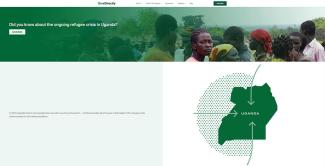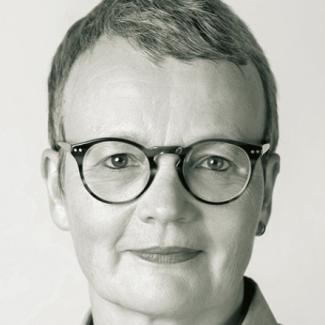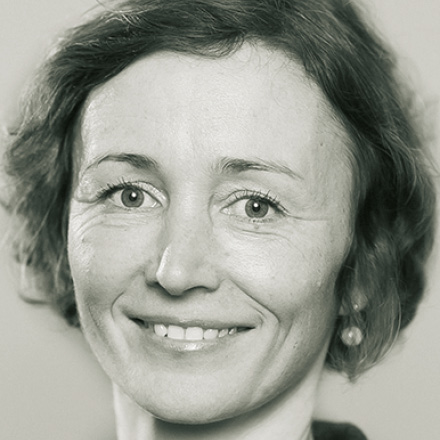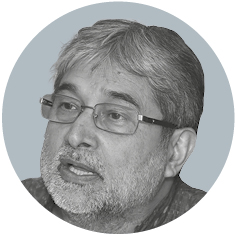Official development assistance
Why taxation matters

Official development assistance (ODA) stands for the range of foreign-funded programmes aimed at helping developing countries to boost both living standards and productive capacity. The proclaimed goal is “sustainable development” which basically means that economies should expand steadily and ensure broad-based prosperity, without however depleting environmental resources. Unfortunately, ODA sometimes hinders sustainable development.
The reason is ODA has a paradox at its heart. It only works to a rather limited extent. From life-expectancy to literacy rates, progress has been quite spectacular internationally (see, for example, review of Hans Rosling’s book “Factfulness” in Focus section of D+C/E+Z e-Paper 2018/09). Rich nations’ support for poorer ones may be bureaucratic, but it has certainly contributed to this trend. Nonetheless, it can – and often does – create dependency and perverse incentives that actually impede progress towards sustainable prosperity.
James Shikwati, a Kenyan economist, is a harsh critic of conventional ODA. He argues that it supports unstable regimes, “while corruption and misappropriation of funds flourish”. Anecdotal evidence from many countries supports his claims. Shikwati warns that ODA not only funds huge bureaucracies, but also teaches Africans “to be beggars and not to be independent”. Shikwati wants ODA programmes to simply be terminated.
Other economists say the good news about poverty reduction is vastly exaggerated. Andy Sumner of Kings College in London says that most pockets of extreme poverty today are in developing countries and emerging markets where average incomes are rising fast. The problem is that many people are left behind, and averages largely reflect gains of top-income groups. Sumner claims that at least half of the world’s poor live in countries where national governments are in a position to lift their people out of extreme poverty.
In 2019, a record number of 109 countries were classified to belong in the middle-income bracket. Poverty was still widespread in many of them, and inequality tended to be growing. This is not sustainable development.
While some countries have made progress – including China, Rwanda and Vietnam, for example – many others have not been successful, often in spite of strong economic growth.
Kenya is a case in point. In the years 2010 to 2017, its economy grew at a robust annual average rate of 5.9 %. It achieved middle-income country status in 2014. However, income inequality has persisted since Kenya became independent in 1963. The country is not governed well, and more than a third of its people still live in extreme poverty (see box). Too few government officials take interest in providing for basic needs. They often prefer to let foreign ODA agencies take care of the matter.
ODA, however, cannot substitute for government action, and the long-term goal must be to make ODA superfluous. Domestic resources should replace external funding in the not too distant future. That is why international agreements on development finance emphasise that all countries must generate tax revenues (see interview with Stefanie Rauscher in Focus section of D+C/E+Z e-Paper 2018/01). That agenda has actually been gaining momentum in recent years, but more can and should be done (see essay by Dereje Alemayehu in Focus section of D+C/E+Z e-Paper 2018/01).
National agencies matter very much. Research done by the OECD (Organisation for Economic Co-operation and Development), a think-and-do-tank of prosperous nations, confirms that insight. ODA is most successful when funders stick to the criteria that were spelled out in a series of high-level summits on aid effectiveness that started in Rome in 2003 and culminated in Busan in 2011 (also see essay by Peter Lanzet in Tribune section of D+C/E+Z e-Paper 2017/02). The most important principles are:
- policy ownership of developing countries,
- transparency and mutual accountability,
- focus on results and
- inclusive partnerships.
Capacity development
These principles serve the purpose of building domestic capacities in developing countries, but ODA agencies unfortunately sideline them all too often. One consequence is that governments of developing countries have no incentive to increase their tax revenues. As there is no political will to solve domestic problems with domestic resources, however, progress must remain illusive.
Angus Deaton, an economist and Nobel laureate, has explained why: “Economic development cannot take place without some sort of contract between those who govern and those who are governed.” Taxes contribute to reinforcing that bond, as other economists, including Mick Moore of the University of Sussex and Odd-other Helge Fjeldstadt of the University of Bergen, have been arguing for over a decade (see Fjeldstad in D+C/E+Z print issue 2007/05, p. 202).
The underlying reason is that citizens who are taxed will want to know what the government will do with their money. They will demand accountability, and the political system gains legitimacy to the extent that governments prove that they are making good use of the revenues, for example in terms of building infrastructure or providing essential services.
Many economists such as MIT’s Daron Acemoglu and Harvard’s James Robinson argue that development has more to do with the strength of a country’s political institutions and its social systems than with ODA (see book review by Rebecca Renz in Focus section of D+C/E+Z e-Paper 2018/08) To reduce poverty, they need good governance more than they need money. If ODA is not managed well, it can actually undermine governance.
There are several innovative approaches to ODA that are designed to deliver better results. Examples include:
- The World Bank’s “Programmes for Results” (P4R) link ODA disbursement to achievement of results.
- Multilateral organisations are considering direct funding in support of global public goods. So far, money for these purposes has been channelled through national governments. However, academic studies suggest that multilateral initiatives are less politicised, more demand-driven and more likely to achieve the intended results. An example of this approach is for multilateral organisations to support research and development aimed at eradicating specific diseases affecting developing countries, such as malaria.
- Economists Armando Barrientos and David Hulmes have suggested a simple yet powerful solution to ending poverty: give money directly to the poor instead of relying on an expensive and complex “aid industry”. The idea is to let them decide for themselves what helps the most. This idea led to the creation of a non-profit organisation named GiveDirectly, which passes money on to the world’s poorest by use of readily available digital technology.
- GiveDirectly began operations in 2011 and is now active in several East African countries. Cash transfers are done by mobile phone and directly boost the purchasing power of poor families (also see report on PEGNet conference in Monitor section of D+C/E+Z e-Paper 2019/12). The operations of GiveDirectly cost less than five cents per dollar raised. That is a tiny fraction of the share spent by ODA agencies. By bypassing both governments and non-government organisations, however, GiveDirectly is certainly not feeding corrupt bureaucracies.
The critics of conventional ODA certainly have a point or two. The challenge now is to improve ODA rather than to simply discontinue it.
Hildegard Lingnau is a public servant with BMZ and Professor for International Relations at Siegen University. She served as German Head of Cooperation in Kenya from 2016 to 2019. She is currently seconded from BMZ to work with the World Food Programme in Palestine. This contribution represents the author’s personal opinion.
hildegard.lingnau@wfp.org
Julia Schnatz works for the Centre for Public Impact, a non-profit organisation established by the Boston Consulting Group.
julia.schnatz@geh.ox.ac.uk














